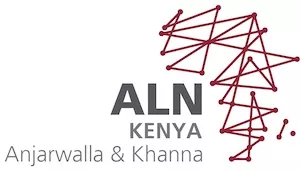- within Tax topic(s)
- in United States
- within Criminal Law topic(s)
The Kenya Revenue Authority (KRA) has recently moved to impose Value Added Tax (VAT) on membership-related fees charged by professional bodies in Kenya. This development has raised concerns across various professions, including members of the Institute of Certified Public Accountants of Kenya, the Architectural Association of Kenya, the Engineers Board of Kenya, the Kenya Medical Association, and other similar organisations.
KRA's demands have stretched across a wide range of fees charged by these bodies. This list is not exhaustive and includes:
- annual practising certificate fees;
- membership and registration fees,
- entrance and identification card fees;
- conference and seminar fees;
- welfare contributions; and
- Continuous Professional Development (CPD) charges
This issue was at the core of a recent landmark ruling by the Tax Appeals Tribunal (the Tribunal), in the case of the Law Society of Kenya v Commissioner of Legal Services and Board Coordination – TAT No E1069 of 2024. The case involved KRA's claim that the Law Society of Kenya (LSK) should have been charging VAT on the various fees it levied on its members, arguing that these were payments for taxable supplies.
The LSK pushed back, arguing that it is a statutory professional, educational and welfare association which provides exempt services under the VAT Act. In a major victory, the Tribunal agreed with the LSK, holding that the fees charged by the LSK were not subject to VAT.
What This Means for Members of Professional Bodies
This ruling is a major precedent with implications for all professional bodies in Kenya, shielding them from retrospective VAT assessments and reinforcing the principle that membership fees and related payments do not amount to consideration for taxable supplies. It underscores the principle that professional bodies are not inherently commercial entities and do not operate as businesses for VAT purposes.
An unfavourable decision would have meant higher costs for these professional bodies and their members. Therefore, this judgement is a significant win for all members of professional bodies as it affirms that mandatory fees and income paid to these bodies by members for requirements such as practising certificates, membership fees, continuing professional development training, and other similar fees charged are not subject to VAT.
Additionally, and most importantly, it restores certainty (which is a key principle of taxation) regarding the applicability of VAT on professional membership fees and sets a strong precedent that reinforces the autonomy and public interest role of such professional bodies in Kenya as they regulate and support their members.
Conclusion
The KRA has the right to appeal this decision to the High Court of Kenya, but unless this judgment is overturned, it stands as the law, and the Tribunal's judgment is binding on both the KRA, members of the LSK and other similar professional bodies.
Contibutors
1. Bettina Okinyi – Associate
2. Trevor Ngile – Trainee Lawyer
3. David Omondi – Trainee Lawyer
Originally published 16 May 25
The content of this article is intended to provide a general guide to the subject matter. Specialist advice should be sought about your specific circumstances.





